One simple wish. The wish to walk at night with earphones in and listen to music is a wish that many women may have. It seems a silly and mundane every day action, but it robs you of a vital sense, hearing. And that is dangerous at night when visibility is low, and the streets are not crowding with life.
Feeling safe is a right everyone should have, and yet, in the UK that right often doesn’t exist, especially for women. Every year, we hear about another case where a woman was a victim. It is disheartening to see the violence that some women endure. It can put you off from listening to more news or researching the topics at hand. Thus, sometimes missing the work done by women to fight for the right to feel safe. There are many activists out there fighting for women’s rights and sometimes their stories may not be seen in the crowd of disheartening news.
Globally, one in three women and girls are victims of violence against them according to the WHO. Every society faces forms of violence and discrimination against women and girls, whether it's domestic abuse, sexual violence, female genital mutilation, femicide or psychological abuse. There are many types of domestic violence, including emotional abuse, physical abuse, and sexual abuse. In addition to partners, relatives, neighbours, employers, and friends, domestic abuse occurs in other relationships as well. Women are more likely to suffer serious injuries and even death from domestic abuse than men, even though both experience domestic abuse.
In England and Wales, 177 women were murdered between April 2020 and March 2021, according to official crime statistics. Protecting women’s rights becomes harder when those in power and those who are meant to protect others, are the perpetrators. David Carrick, a former Metropolitan Police Officer who committed violent and degrading sexual offences against dozens of women over a period of two decades, recently received a minimum sentence of 30 years. The sentence has been widely regarded as a step forward for protecting sexual and physical assault victims. In spite of this, women's confidence in law enforcement has been undermined by such a horrific case.
Patsy Stevenson, a women's rights activist and writer, who was arrested at the vigil of police murder victim Sarah Everard, sees the trust between police and the public being more unstable after the David Carrick case.
“He used the fact that he was in the police force to scare and control women, which oftentimes police do [in] a lot of cases where you hear about people that are being abused by police. They don't feel like they can say anything about them. It's not a new thing. It's happened for decades. And they're so close to the justice system. They do get away with anything they want. It just enhances the distrust that women have for the police force.”
These cases show a terrifying reality for people. A Lot of people out there end up taking that first step to change this reality.
“What happened to Sarah Everard and what happened to us at the vigil, suddenly a lot of other women started waking up to it,” says Patsy. The vigil was a place to mourn the loss of Sarah Everard who was murdered in 2021 and grieve with others. Yet that day, Patsy found herself restrained against the floor, handcuffed and arrested. Many at the vigil faced the same situation. Police arrested on grounds that they were violating Covid 19 laws. The same reason used to stop Everard by met police and was later murdered by the police officer.
Having more support or more people fighting for one goal, can aid future cases or create a better future. For Patsy, these types of cases don't just show the brutality of the situation but the courage people take in speaking up. Once that person has come forward, even though it’s after the violence and the consequences, it can cause a domino effect where taking that first step could empower others to do the same.
“If you see a woman who's come out about her abuse and it's caused a positive change and someone actually had justice or some form of justice, then more women are more likely to be like, “Oh, actually, I'm gonna come up as well”, but it really takes courage to be that first one.”
For most victims, one fear could be not being believed. Taking that first step of speaking out of reporting what has happened, can be hard to do as not being believed is a real possibility.
“So my issue lies with people not believing women. And a lot of people, a lot of men especially saying like, oh, but, you know, false accusations. You're more likely to be hit by a comet than be falsely accused,” says Patsy.
This fear and worry can lead to being sent back to the abuser and allowing the situation to carry on with no help.
And why should women speak out about their abuse when it isn’t just the fear of not being believed that exists? If someone were to believe them, there is a chance that they not only won't be taken seriously but could be blamed. This is often exacerbated by the way women who have been victims are presented in the media. Patsy wants a change in media to not be focused on clickbait and to leave misogyny out of the articles. In the recent Nicola Bulley case, personal details have been used to blame Nicola for her disappearance who has now been confirmed dead.
“When a woman goes missing or when a woman has been murdered or raped or something has happened to a woman at the hands of a man, the headlines will often be excusing the behaviour. It's the same thing as that woman who was a head teacher. She was murdered by her husband. And he murdered the child as well. And it was said that he did this because she was an overachiever because she succeeded and he was in her shadow. Why are we giving excuses? So if we [are] successful now, we'll be murdered. Like, that's ridiculous. I think we need to stop excusing men for their behaviour in any context. Just believe women. I mean, it's about believing women and hopefully, that will cause a domino effect where people are actually [like] if I tell my story, then I'll be believed and things will happen from it.”
Victim Support interviewed over 1,000 domestic abuse victims to better understand the relationship between them and the police. There 53% of respondents reported domestic abuse at least twice before they felt appropriate action was taken by the police. There 24% of respondents reported domestic abuse three times or more before the police took action.
For that to occur, equity needs to be achieved for everyone.
“In order for everyone to succeed, equity must be provided. Treating everyone equally is equality. To achieve equality, we must create a level playing field. However, that can only work if everyone starts from the same point and we aren’t,” Patsy says. A fair and just society is characterised by equity, not equality: whereas equality means providing the same to all, equity recognises that we don't all start from the same place and must acknowledge and adjust imbalances. For Patsy, equity is, “to understand the needs of every individual and cater to those exact needs. I feel the same way about feminism and equity in that sense, the suffragettes for example. Everyone says, you know, [the] suffragettes were amazing. They fought for women's right to vote, but actually, they did not take into account that there are a lot of other women that were left behind, mainly women of colour, who just didn't get the vote at all. So it's a sense of where you have to be: not only intersectional but very thoughtful about what you're putting across, because like I said, it's not just about equality, because people need different things.”
Ethnic minorities sometimes face troubles in reporting their situation to the police which hinders their rights to feel safe. According to Victim Support, it found almost half of Black and ethnic minority respondents (48%) felt the police treated them differently because of their ethnic background or heritage. Domestic abuse offences increased by 8 per cent, according to the Office for National Statistics 2022 report indicating a violation of rights.
“It's all well and good to me saying, the most important thing is that police take domestic violence cases seriously, but I know of several women who said about their experiences with police coming over and not being able to see bruises on their skin because their skin is darker. They will think that a lot of police officers, from experiences that I've heard, are where they will not take it as seriously because it's a Black family. Because “Ohh, it's just that's the way it is, they are violent,” and it's that racist thinking that actually is why we need to fight. And make sure that police are taking domestic violence seriously, there's another layer to it and another layer to it, and another layer to it. So that is equality. But you're not thinking of everyone else. And I think equity is super important. You can't fight one without the other.”
Equity is ensuring that everyone’s needs are met. Giving everyone the same thing may not be helpful at all as a person of colour will need different support or investigations than a white person. Equity allows for everyone, no matter their race, to have specific support that can be of use to them and help.
It’ll take time for change to occur and to ensure that everyone’s needs are met before social justice can be fulfilled.
“I don't think it's gonna change massively. If there are changes it will be little and consistent, but it does take a while.”
Patsy offers a reminder that actions are never small. Taking that first step into voicing an opinion or spreading information around on social media may seem small but it’s a step that could inform others of what’s going on around them.
“Don't think as small as you think you are [that] the impact will be. It's not. It's never small, you know. So I think the more people get into activism and keep talking about it and keep posting about it [the better it will be]”.
Patsy was a physics student, had no friends and was bullied at school, spending her time studying at university and then returning home. She had always thought that one person couldn’t make a difference. Now she was at London Fashion Week, invited to Unhidden, a clothing line for people with different able bodies and how it can be accessible for them.
“It's like the fact that actually your voice, if you keep talking and keep trying to make a change, eventually you will and it's like you have to just keep chipping away and chipping away. And it can get exhausting. You have to look after yourself once you're doing it. But you know, because of what I've said, so many people have been affected by that. And anyone can do that. I'm not like a special person. I don’t have some weird talent that nobody has. I'm the same as everyone else and if I can do it, anyone can and I want everyone to have that confidence to be like, you know what? I'm standing up for myself here. I'm standing up for women here. I'm gonna do what I believe is right, and then, you know, the rest will follow.”
If you have been affected by anything written in this article, below are some sites you can reach out to for help.

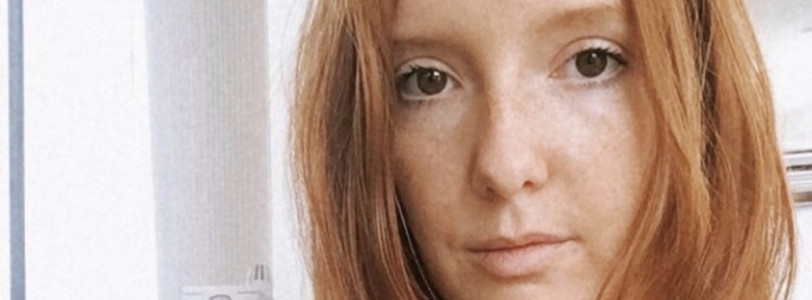
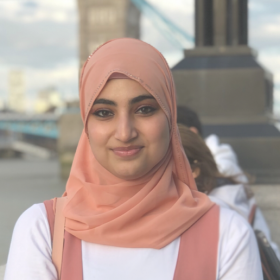
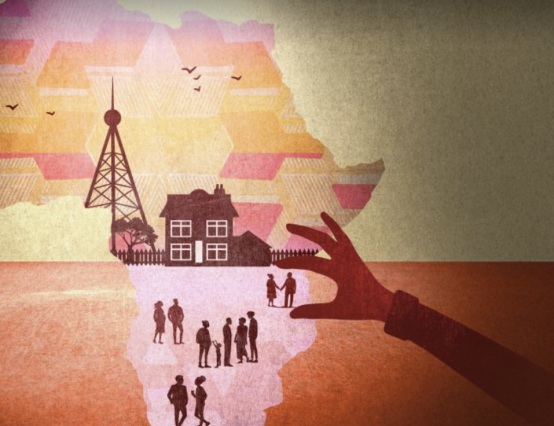
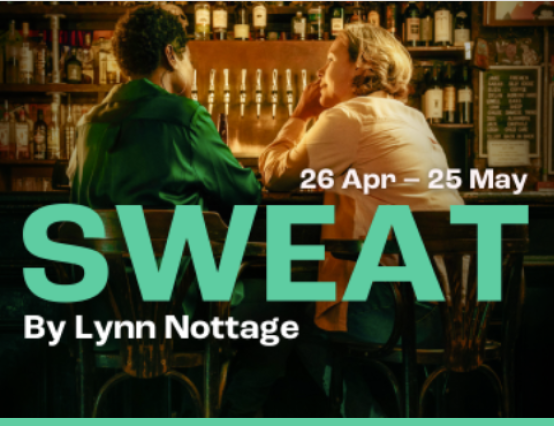
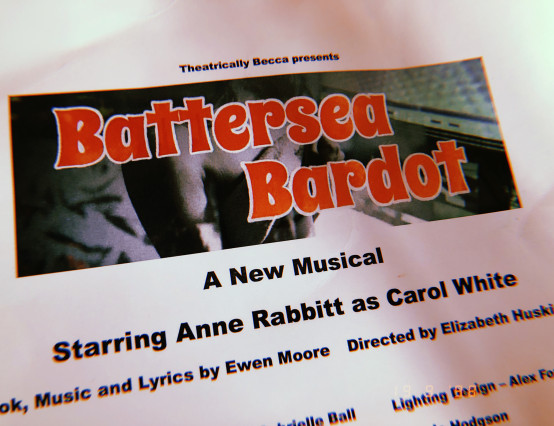



0 Comments